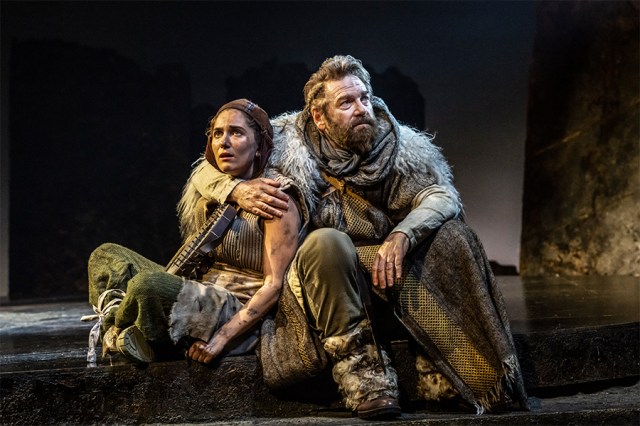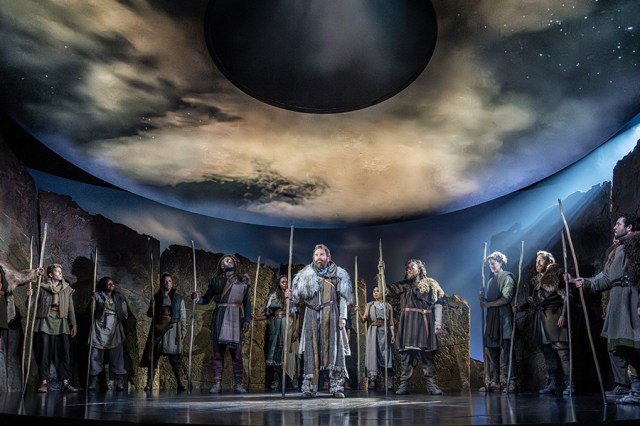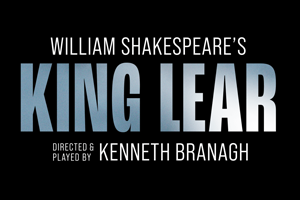King Lear review – Kenneth Branagh’s banal tragedy
Shakespeare’s tragedy returns to the West End

I have loved watching Kenneth Branagh pick his way through Shakespeare on stage, from his thrilling Henry V at the RSC at the age of 23, through a Romeo and two goes at Hamlet, to a gripping Macbeth and his damaged, deeply moving Leontes in The Winter’s Tale in 2015. But his King Lear, much-awaited, is a misfire.
At 62, he’s young for the role and – directing himself – has decided to play the king as a vain, puffed-up monarch, relying on others around him for flattery, conscious of his dignity. Even as Lear descends into madness and melancholy, Branagh retains an orotund delivery, enunciating every word, punctuating his speeches with strange pauses. “LET…IT…BE…SO” he announces, with snarling ferocity, and a toss of his still boyish blond hair.
It’s a bit like seeing a 19th century actor manager taking to the stage. There are some magnetic moments – most notably with Jessica Revell who doubles both as Cordelia and The Fool – but Branagh seems reluctant to drop his guard, to expose himself to frailty or feeling. Even when he is battling the elements, he still seems to be in control. He holds the role but never fully seems to inhabit it.
The coolness of this approach might just have worked except for his second big decision – which is to set the production in a very ancient Britain, where the cast prowl around in furs, brandishing sticks. The contrast between the reserve of the performance and the wildness of the setting is awkward. Designer Jon Bausor has set the action amidst great jutting stones that conjure Stonehenge, and which move inwards to suggest darkened rooms.
Overhead is a great circle of an eye, over which Nina Dunn’s projections and Paul Keogan’s lighting set changing moods, the onset of rain, the flight of birds. The suggestion is that of primeval fate and the gods overlooking the actions of mortals – killing them, in Gloucester’s famous words, for their sport.

Yet the ruthless pruning of the text which brings the play in at a brisk two hours means that its metaphorical power, its poetic patterning of dark and light, natural and unnatural, kind and unkind is more or less thrown out. It’s unclear why anyone is doing anything and what we are left with is a slightly dull episode of Game of Thrones with a lot of shouting, a bit of fighting and some nasty eye-gouging.
The mainly young and inexperienced cast surrounding Branagh are left beached by the approach. Their characters and lines are cut, and they race through their speeches, skating gamely along the surface but never penetrating the depths beneath.
It’s such a disappointment. Branagh has been a great advocate for Shakespeare; his films and his performances have done so much to popularise the plays, making them fresh for a new generation. Yet, as for so many before him, Lear undoes him. The only consolation is that he is tackling it so early, he can always have another go.
















